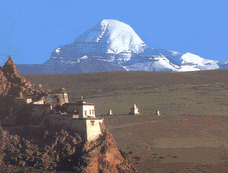July 30, 2008 Mr. Deepak Tamang
Sustainable Forest and Natural Resource Management: Ensuring Sustainable Livelihoods in Nepal
See the attachment for presentation detail.
http://groups. yahoo.com/ group/nepalorego n/files/speaking .pdf
Deepak Tamang
International Fellow - Nepal
World Forest Institute, 4033 SW Canyon Road
Portland, Oregon - 97221, USA.
Office:++ (1-503) 488-2135 ext 135 Cell: 503-754-3064
dtamang@worldforest ry.org www.worldforestry. org/wfi
Deepak Tamang
Search-Nepal
1061 Thir Bam Road, GPO Box 4277
Maharajgung, Kathmandu. Nepal.
Office: ++( 977-1) 4416143; 4438086; 4438087
deepak@search. wlink.com. np www.searchnepal.org
Wednesday
Forestry Issues Across the Globe [Nepal]
Thursday
[Portland] Metro offers free guide to Portland-area walks
Walking costs nothing. It burns calories. And it gives you a new perspective on the Portland area.
So says an evangelizing new guidebook, "Walk There!"
Metro, the regional government, makes its first foray into foot travel with 50 excursions. Each walk comes with a slick description, photos, map and difficulty rating -- think Frommer's, not government bylaws.
Treks are assigned to categories: For a power walk, hit the stairs in Alameda. Take a lunchtime stroll in downtown Gresham, enjoy the natural beauty of Fanno Creek or get your urban fix on North Mississippi Avenue.
Metro credits Kaiser Permanente with the idea and funds for the guidebooks, which are free. Governments, nonprofits and outdoor groups helped craft routes. And editing credits go to Laura O. Foster, author of "Portland Hill Walks" and the upcoming "Portland City Walks."
The Oregonian talked walking with two forces behind the book. Their thoughts, edited for brevity:
David Bragdon:
Metro president
This book is very ungovernment-esque. The writing's conversational; the design's kind of hip.
We strive to be a little unconventional and quirky. We want it to be approachable for people, something to pick up on a Saturday morning. You don't feel like you're reading some bureaucratic document....
http://www.oregonlive.com/news/oregonian/index.ssf?/base/news/1215557706259470.xml&coll=7
Monday
How to Live a Long Life
As technology and medicine evolve over time, the life expectancies in most countries are increasing. Here are a few additional ways of increasing the odds that you will make it to that ripe old age of 85 and beyond.
http://www.wikihow.com/Live-a-Long-Life
Tuesday
Mindful Travel in Ladakh and Ladakh Project (Renewable Energy)
For many centuries, Ladakh evolved according to its own values. Then, in 1974, the area was suddenly thrown open to the outside world. At that time the Indian government started a process of planned development, which included tourism and the introduction of Western-style education, agricultural chemicals and dependence on transport and fossil fuels for all vital needs. This has brought many changes to Ladakh - including junk food, plastic consumer goods, toxins such as DDT and asbestos, pollution and unemployment. Along with the mass media, these changes have also fostered the impression that life in the West is infinitely better than in Ladakh.
http://www.isec.org.uk/articles/mindful.pdf
Renewable Energy
ISEC has played a central role in reducing the Ladakhis' dependence on imported and expensive fossil fuels.
Working closely with the Ladakh Ecological Development Group (LEDeG) - an indigenous NGO we founded in 1978 - we have developed and demonstrated numerous small-scale, energy-saving technologies, most of which can be built and maintained locally. These include:
- Hydraulic ram pumps for lifting irrigation and drinking water.
- Solar room-heating systems to combat the freezing winters.
- Solar water heaters and cookers.
- Photovoltaic power for lighting.
- Micro-hydro installations and small wind turbines for electricity production.

